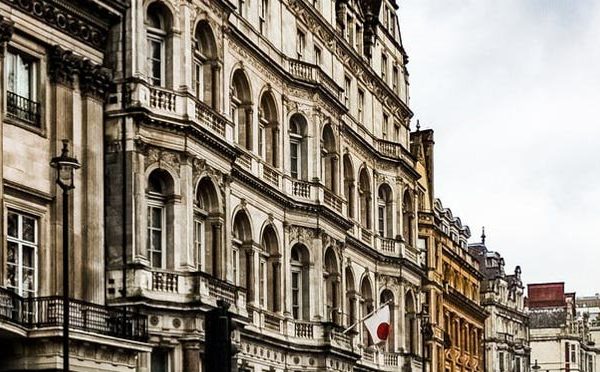As you may or may not know, Taxkings is based in bonnie Scotland. However, we often use UK/English tax thresholds in our articles, because this applies to a wider audience. We have received a few requests to do a Scottish version of one of Clare’s popular articles How to pay less tax in 2019-20 for Small Business Owners.
Also, because we’re Scottish & based in Scotland, we can joke about the stereotypes; you can’t.
I’ll keep this short; make sure you’ve read the above article before reading any further, because in this blog I’m only going over the tax calculations.
As in the original article, we’re assuming both you (a sole trader) and Saul (company director of Treyder Ltd) are making exactly £70k each year.
So if you and our character Saul aka “The Company Director Formerly Known As Saul Treyder, The Soul-Trading Sole Trader” were resident in Scotland, here’s how things would play out:
| Saul & his company, Treyder Ltd | You |
| Sauls company, Treyder Ltd, has £70,000 profit over the year. | You have £70,000 profit over the year. |
| Treyder Ltd pays Saul a basic salary of £8,632.
Saul used this figure because it’s low enough that both Saul & Treyder Ltd avoid paying national insurance contributions.
This counts as a company expense, reducing Treyder Ltd’s taxable profit to £61,368. |
You and your business are the same entity.
Any money you take from the business for personal spending simply does not count as an expense.
Your profit is still £70,000 |
| Treyder Ltd owes corporation tax at 19%, on all profits.
Its total corporation tax bill is £11,670. |
You make your first £12,500 tax free.
You pay 19% on everything between £12,500-£14,549. This comes to £389.50. You pay 20% on everything between £14,549-£24,944. This comes to £2,079.00. You pay 21% on everything between £24,944-£43,430. This comes to £3,881.85. Above this, you pay tax at 41%. This comes to £10,893.70.
Your total income tax bill is a whopping £17,244 |
| Treyder Ltd pays no employers National insurance contributions. | Your Class 2 NICs come to £156.00.
Your Class 4 NICs come to £4,123.
Your total NIC’s come to £4,279. |
| The total tax paid by Treyder Ltd comes to £11,670.
|
Your total tax and NICs come to £21,523.
|
| This leaves Treyder Ltd with £49,698 profit in the bank.
So far, Saul has £8,632 in the bank. He puts on his favourite Average White Band record, and chills out.
|
This leaves you with £48,477 in the bank after tax. You crack open a can of Irn Bru, and stare out of the window at the rain. |
| Like you, Saul gets to take advantage of his £12,500 tax-free allowance.
He’s only got £8,632 of personal income so far (his salary), so he has £3,868 left to use up. |
That’s it for you. You take a walk outside to hang out with your best pal; a highland cow. |
| Saul is the only shareholder of Treyder Ltd, so he can withdraw all of the company profit.
Saul takes £3,868 in dividends to use up his personal tax-free allowance.
He also takes advantage of his £2,000 tax-free dividend allowance.
He has now taken a further £5,868 out of the company tax-free.
Combining his salary and dividends, Saul now has £14,500 in the bank.
Treyder Ltd has £43,840 profit left in the bank. |
Your tax adventures end here. Disappointed to be missing out on the tax action, you head out to the local kebab shop, buy a munchie box. It cheers you up somewhat. |
| Treyder Ltd distributes all its profits to shareholders (Saul).
This will push Saul’s total income up to £58,340.
Did you know dividend tax thresholds are the same in Scotland as the rest of the UK?
Saul pays basic-rate dividend tax on everything between £14,500 to £50,000. 7.5% of £35,500 is £2663.
Saul pays higher rate dividend tax on the rest of his income. 32.5% of £8,340 is £2,711.
Sauls total tax liability is £5,374, leaving him with £52,966 in the bank. |
At this point, you realise two things:
1. You should’ve incorporated. 2. You should’ve ordered more pakora sauce.
For comparison, your total tax liability was £21,523, leaving you with £48,477 in the bank after tax. |
As you can see, it makes even more sense to incorporate your business if you are resident in Scotland. In our original article, Saul had saved £2,745 by incorporating his business, but in Scotland he would have saved £4,479.
That’s about 2986 deep-fried mars bars.
Bear in mind, incorporating is not the right choice for everyone. Some businesses can lose out by incorporating, particularly those starting out with low earnings.
Want to know whether you should incorporate your business? Why not book a free consultation?






